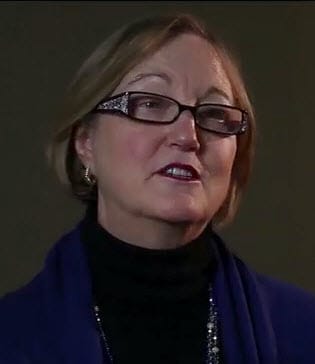Utah Supreme Court Justice Durham's electoral contradiction
In 2016, when the the Utah State Supreme Court issued an opinion that required the Utah Republican party to hold primary elections to determine its nominees for general election, how many of those justices foresaw a 2024 US Presidential election that would have a Democratic candidate for president that did not receive a single primary vote for that office?
Retired justice Christine Durham probably did not. Even though she was part of that Utah decision--and may have actually authored parts of it (2016 UT 17)--she is currently a political activist campaigning for the national Democratic candidate Kamala Harris, to be both its bona fide nominee and to be president of the US. Harris was never required to participate in a primary election for that position. Durham has provided no comment in her activism on this obvious incongruity.

In 2016, Durham and the Utah Supreme Court worked to strip the GOP locally of its own discretion and mechanisms to fairly determine its nominees. The Utah Republican party vigorously defended its ability to structure its own triggers for primary contests as they integrated with the convention process for candidates. As the court wrested local control from parties associated with the national political organizations (such as Republican and Democrat), it did so with strong assertions about the essential and necessary nature of primary elections as a democratic component in representation.
One would logically assume that any justice authoring or agreeing with that sentiment would have strong objections to the national counterpart of a Utah party picking a candidate without a primary election for that office and with no other mechanism than private telephone conversations behind the scenes with undisclosed party power brokers. According to sources, Vice President Harris recently arranged and secured her delegate endorsement on a Saturday afternoon, after Biden's presidential debate, through several hours of phone calls in her home while eating pizza in sweat pants.
If incongruencies on this principle should exist, one would historically presume that the large national organization of the party would follow the more specific, codified, and prescribed process for determining its nominees, considering the country's history of federalism, and its deference to state sovereignty and flexibility for local matters. Instead, the apparent inverted political sensibilities demonstrated in Durham's political activism seem to have gone unnoticed, as no other Utah media has reported this.
The 2016 decision, which dramatically altered the fundamental landscape for political involvement of Utahns, was a short per curium publication, in which all justices are presumed to concur. The same court also subsequently upheld that decision this year and even echoed how important the primary election mechanism is as a necessary ingredient for democratic elections, in contrast to the Democratic party that was allowed to evade democratic components altogether in producing its current candidate for US President.
